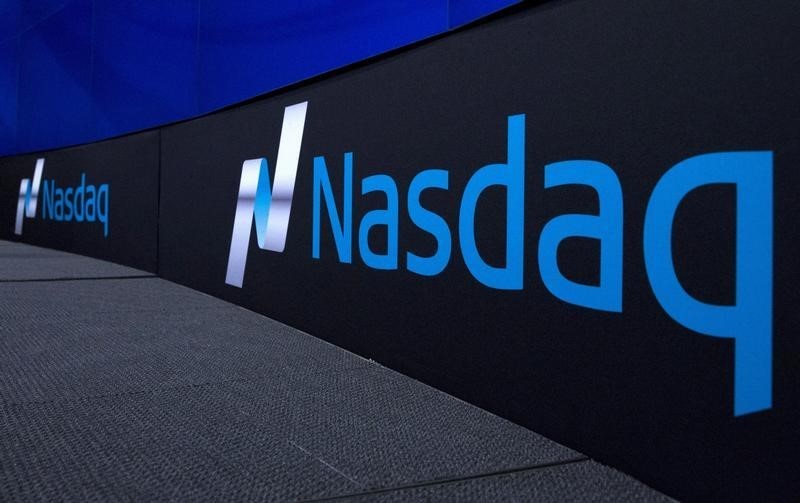By Geoffrey Smith
Investing.com -- U.S. stock markets opened mostly lower on Thursday under pressure from a fresh rise in bond yields, as market participants reacted skeptically to the Federal Reserve's assurances that inflation won't be a problem for the next two years.
By 9:40 AM ET (1340 GMT), the yield on the 10-year Treasury bond had risen to 1.75%, its highest in 14 months. while the 30-year bond was trading around the 2.50% level after breaching it in overnight trading for the first time since 2019.
Rises in long-term interest rates over the last few weeks have tended to put more pressure on technology stocks than others, as they raise the opportunity cost of holding assets that are in many cases only expected to generate significant cash flows some years in the future. That was the case again on Thursday, with the tech-heavy Nasdaq Composite falling 1.3% in early trading, while the S&P 500 fell 0.5%.
The Dow Jones Industrial Average, by contrast, with its heavier weighting of cyclical stocks, eked out a 0.1% gain on top of Wednesday's record close to trade at 33,098 points.
Earlier, the Labor Department had posted data showing an unexpected rise in initial jobless claims to 770,000. However, the broader trend continued lower, with the broader number of those claiming unemployment-related benefits reversing its jump in the previous week’s report to stand at just over 18 million at the end of February.
The market preferred to focus on growing evidence of near-term price pressures, however. The Philadelphia Fed's business survey showed the region's manufacturing sector running hot, with its index hitting the highest reading since the 1970s as orders, backlogs and input prices all surged.
Among individual stocks, Tesla (NASDAQ:TSLA) stock fell 3.5%, as some continued to rotate out of the richly-valued electric carmaker into cheaper rivals. News flow around the stock was also negative, with a highly-publicized incident in Michigan that appeared to be caused by shortcomings in its Autopilot software, as well as reports that U.K. customers will no longer be subsidized to buy Tesla cars. The government is lowering the eligibility threshold for subsidies to a price point well below the current price of its Model 3.
Banking stocks were the standout performers in early trade, with PNC Financial (NYSE:PNC) hitting an all-time high and Bank of America (NYSE:BAC), Wells Fargo (NYSE:WFC), U.S. Bancorp (NYSE:USB) and Morgan Stanley (NYSE:MS) stock all hitting their highest in over a year. That reflects a steadily-steepening yield curve, that pads the margins that banks make from taking short-term deposits and making long-term loans. The spread between two-year and 10-year rates has widened from only 65 basis points in November, before Pfizer (NYSE:PFE) and BioNTech announced their vaccine breakthrough, to 150 basis points as of Thursday. That's the highest level since 2015.
